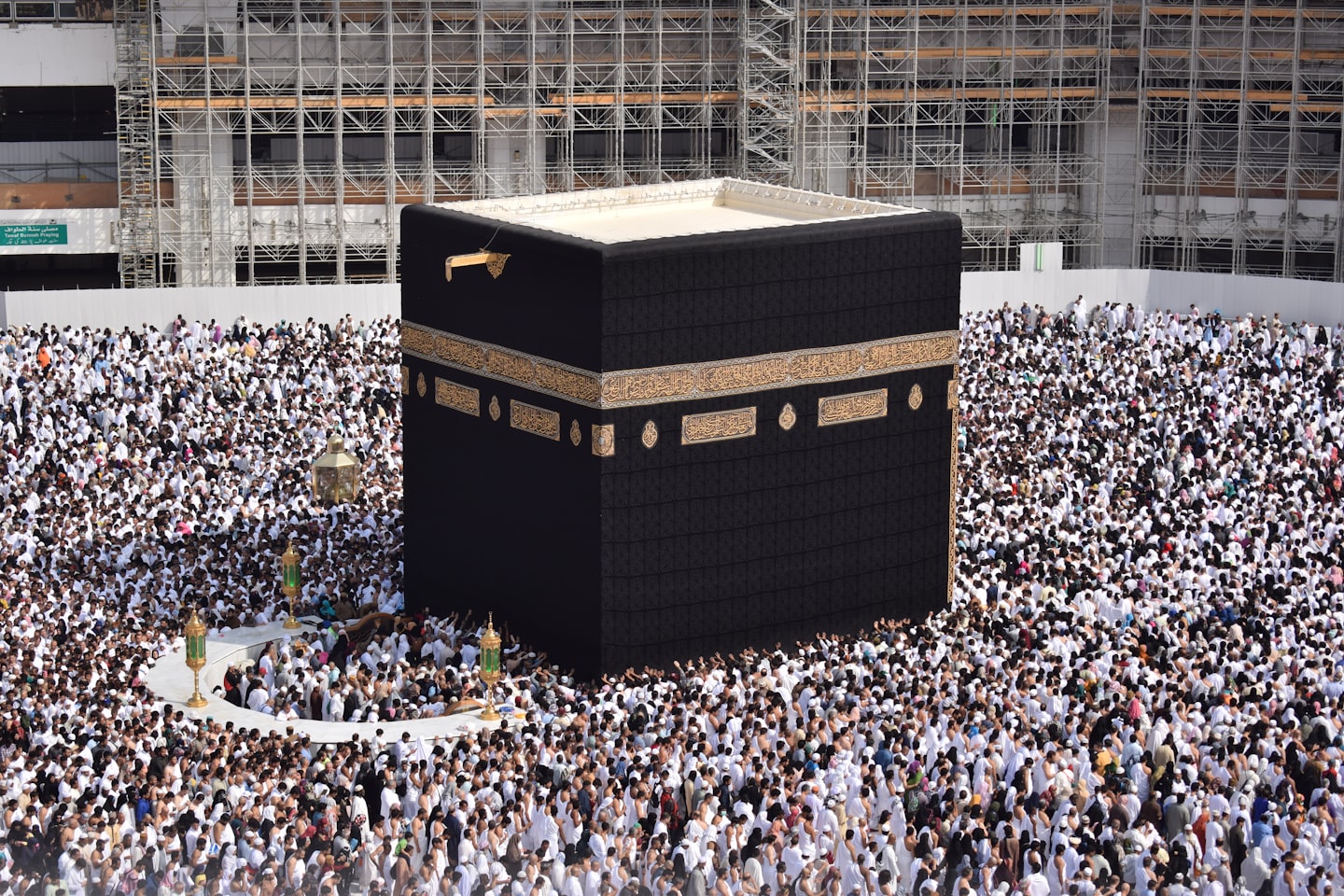The Five Pillars of Islam are the five basic acts of worship that are considered the foundation of a Muslim’s faith and practice. They are:
- Shahada (Faith)
- The declaration of faith: “There is no god but Allah, and Muhammad (pbuh) is the Messenger of Allah.”
- This affirms the belief in the oneness of God and the prophethood of Muhammad (peace be upon him).
- Salah (Prayer)
- Performing the five daily prayers at prescribed times:
- Fajr (before sunrise)
- Dhuhr (midday)
- Asr (afternoon)
- Maghrib (after sunset)
- Isha (night)
- These prayers are a direct link between the worshipper and Allah.
- Performing the five daily prayers at prescribed times:
- Zakat (Charity/Almsgiving)
- Giving a fixed portion (usually 2.5%) of one’s savings and wealth to the poor and needy.
- It purifies wealth and supports the welfare of the community.
- Sawm (Fasting during Ramadan)
- Fasting from dawn to sunset during the month of Ramadan, abstaining from food, drink, and other physical needs.
- It promotes self-discipline, spiritual growth, and empathy for the less fortunate.
- Hajj (Pilgrimage to Mecca)
- A pilgrimage to the holy city of Mecca, required once in a lifetime for all Muslims who are physically and financially able.
- It takes place during the Islamic month of Dhu al-Hijjah and includes specific rituals that commemorate the actions of Prophet Ibrahim (Abraham) and his family.
These pillars form the core framework of a Muslim’s life, guiding their relationship with God and with others.

